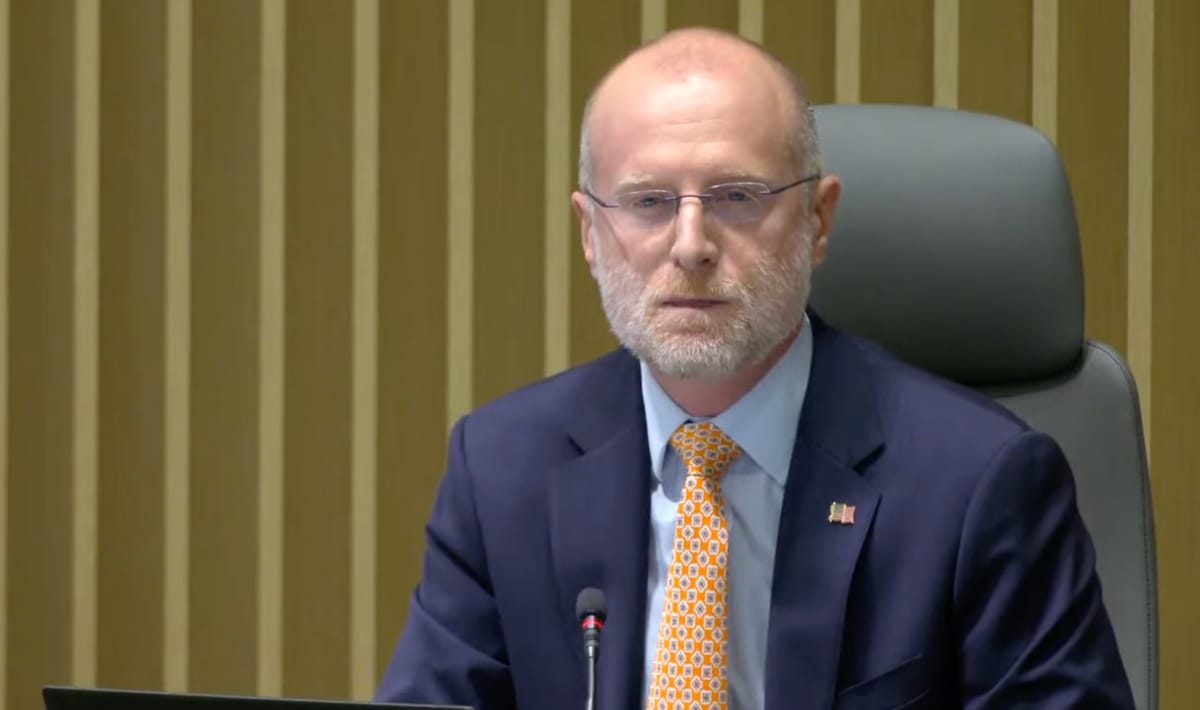FCC Approves SCS Framework, 'All-In' Pricing, New Emergency Code
Republican Commissioners dissented from the all-in pricing rules.

WASHINGTON, March 18, 2024 – The Federal Communications Commission voted to approve a framework for supplementing mobile coverage with satellites, new rules for cable and satellite video providers, and a new emergency alert code at its March 14 open meeting.
The agency also moved to increase its speed benchmark for defining broadband internet and institute a cybersecurity labeling program for IoT devices.

Supplemental coverage from space
The commission unanimously adopted a new “supplemental coverage from space” framework allowing satellite operators to lease spectrum bands from mobile carriers to provide service outside of the carrier’s coverage area.
“We are the first country to adopt a framework that allows a satellite operator to partner with a terrestrial mobile carrier to get access to their terrestrial spectrum,” said FCC Chairwoman Jessica Rosenworcel. “Then the satellite system can provide service directly to the subscribers of the wireless carrier in areas where the carrier lacks coverage.”
The commission has previously approved waivers for testing such arrangements on a case-by-case basis, such as T-Mobile’s partnership with Starlink. Last week’s action sets up a more uniform framework but does not forestall waivers for proposals that take alternate approaches, in what Commissioner Geoffrey Starks referred to as a “hybrid approach.”
The measure sets up a licensed-by-rule approach for SCS earth stations communicating with satellite networks.
In adopting the rules, the FCC also initiated a request for comment on how to implement location-based routing for 911 calls placed on hybrid satellite-terrestrial networks and on protecting radio astronomy from interference.
Officials said the public draft did not receive major edits.
'All-in pricing'
Commissioners voted 3-2 along party lines to approve new rules requiring cable and satellite companies to combine all programming fees and other charges into a single line item in promotional materials and on customer bills.
“The hard-to-understand asterisks and fine print that litter advertisements and bills for cable and satellite TV service will soon be extinct,” Starks said. “Too many families are surprised by the bottom-line price they end up paying for their monthly service.”
Commissioners Brendan Carr and Nathan Simington, the FCC’s two Republicans, dissented from the item. They said the commission lacks authority under the Television Viewer Protection Act to regulate satellite billing or any promotional materials.
“There’s no world in which section 335(a), section 632, or section 642 empower the commission to regulate price formatting on promotional materials,” Simington said. “It’s just not there.”
The public draft of the rules circulated last month argues that sections 642 and 335(a) of the TVPA, the latter of which provides for FCC authority to institute “public interest or other requirements for providing video programming,” put satellite billing and promo materials within the agency’s wheelhouse. Section 632 of the law provides more explicitly for the commission’s authority over cable billing.
The commission in December also proposed banning satellite and cable video providers from charging early termination fees, which Carr and Simington also dissented from.
Industry players like DirecTV and NCTA opposed the all-in pricing measure during the rulemaking process.
Consumer advocacy group Public Knowledge supported the new rules.
“For too long, customers have asked, ‘How is this even legal? How can they tell me one price, then charge me so much more?’ Finally, thanks to Chairwoman Rosenworcel, it is no longer legal to engage in such blatant price gouging," Public Knowledge Senior Vice President Harold Feld said in a statement.
Agency officials said the final rules reflect edits from the draft to allow smaller providers more time to comply.
Missing and endangered persons code
Commissioners unanimously opted to propose a new emergency code for the agency’s Emergency Alert System.
The new event code for “missing and endangered persons” would function similarly to Amber alerts for kidnapped minors. The alert would apply to adults who have been abducted or who are missing and endangered.
The move was in part a response to a November resolution from the National Congress of American Indians which called on the FCC to implement the new emergency code, Rosenworcel said.
“This item represents a small but powerful contribution to address the crisis of missing and murdered Indigenous persons, which has afflicted native communities for far too long,” said Commissioner Anna Gomez. “Native Americans constitute 2.5 percent of all missing person cases, despite comprising only 1.2 percent of the population.”











